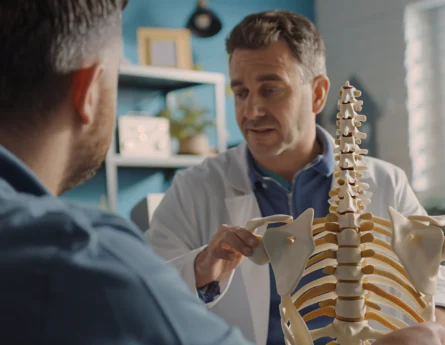Chiropractors play a vital clinical role in the recovery of individuals injured in car accidents, workplace incidents, and slip-and-fall accidents. But, their significance doesn’t stop at treatment. Increasingly, chiropractors are being asked to support personal injury claims in courtrooms—either through deposition or live testimony. Understanding your legal role in a personal injury case can help you make an informed decision about whether to provide expert testimony.

The Chiropractor’s Role in a PI Case
In Texas, like in most jurisdictions, personal injury claims rely heavily on proving causation, necessity of treatment, and damages. Chiropractors often provide the first detailed clinical record of the patient’s injury after an accident. You’re documenting the patient’s condition, pain levels, mobility, and progress over time. This information becomes central to establishing not only that the patient was injured, but that the injury required medical intervention and incurred costs. This makes your medical records, not just your treatment, powerful legal evidence.
Why Chiropractor Testimony Matters
Your testimony may be requested to support any of the following legal objectives:
- To confirm that the injury was caused by the incident in question.
- To explain the medical necessity of your treatment.
- To validate the length, scope, and cost of care provided.
- To offer a professional opinion on long-term effects or future care needs.
In many cases, your testimony can rebut claims by the defense that the injuries were pre-existing, exaggerated, or unrelated to the accident. Attorneys may ask you to clarify complex chiropractic terms for the judge or jury, making your patient’s pain and recovery story more credible.
Fact Witness vs. Expert Witness
Chiropractors may testify as either fact witnesses or expert witnesses, depending on the nature of the case and the attorney’s legal strategy. A fact witness testifies about what they observed directly during the course of care: symptoms, diagnoses, X-rays, progress notes, etc. An expert witness may be called upon to offer an opinion beyond direct observation, such as explaining how a whiplash injury typically presents or assessing long-term disability.
To testify as an expert, you must qualify under Texas Rule of Evidence 702, which involves demonstrating that your expertise is based on knowledge, skill, experience, training, or education. Most licensed chiropractors meet this standard.
Challenges and Considerations
Testifying in court comes with responsibilities and risks. You must be prepared to:
- Justify every aspect of your clinical record under cross-examination.
- Explain medical concepts in plain language.
- Address gaps or inconsistencies in documentation.
Defense attorneys may attempt to undermine your credibility, especially if you work frequently on personal injury cases or accept patients on a lien basis. That’s why clear, consistent, and objective documentation is essential. Judges and juries respond well to measured, evidence-based testimony—not advocacy.
Before agreeing to testify, review the case thoroughly with the patient’s attorney. You should understand your role, be briefed on potential questions, and ensure that your records are complete. Also, make sure fees for time spent preparing for or appearing in court are clearly stated in your financial policy or lien agreement.
Should You Testify?
If you’ve treated the patient directly, your testimony can offer credibility and clarity to a claim that might otherwise rely solely on subjective complaints. More importantly, your willingness to testify can help ensure your patient receives fair compensation for their injuries—and that you are properly compensated for your care.




